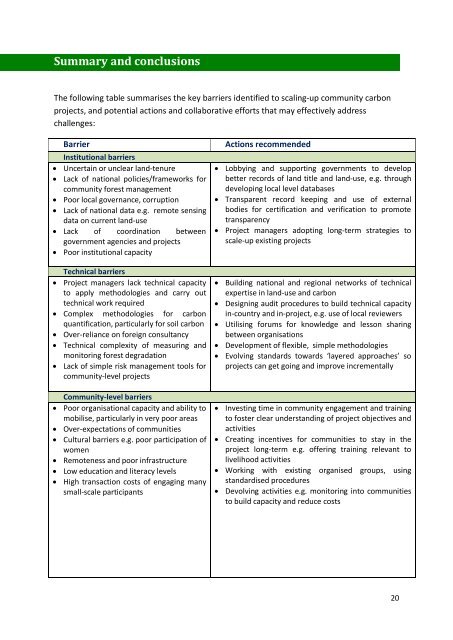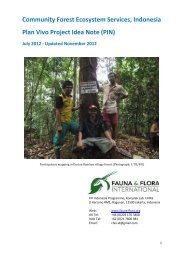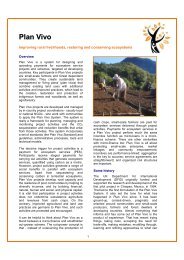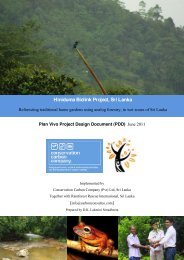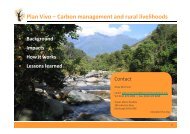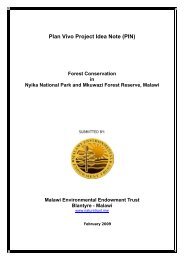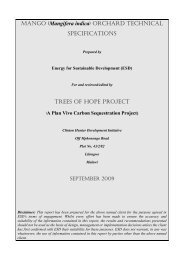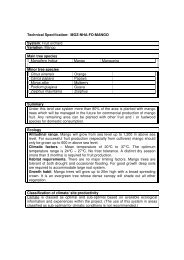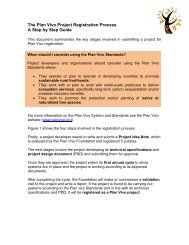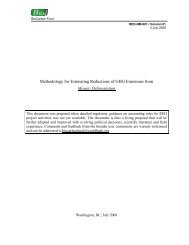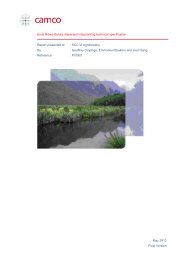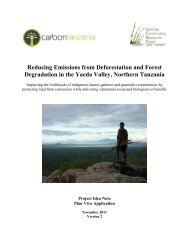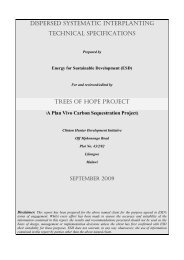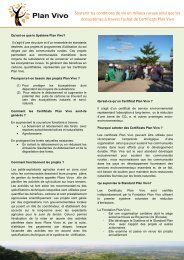Scaling-up Community Carbon Projects A roadmap - Plan Vivo
Scaling-up Community Carbon Projects A roadmap - Plan Vivo
Scaling-up Community Carbon Projects A roadmap - Plan Vivo
Create successful ePaper yourself
Turn your PDF publications into a flip-book with our unique Google optimized e-Paper software.
Summary and conclusions<br />
The following table summarises the key barriers identified to scaling-<strong>up</strong> community carbon<br />
projects, and potential actions and collaborative efforts that may effectively address<br />
challenges:<br />
Barrier<br />
Institutional barriers<br />
· Uncertain or unclear land-tenure<br />
· Lack of national policies/frameworks for<br />
community forest management<br />
· Poor local governance, corr<strong>up</strong>tion<br />
· Lack of national data e.g. remote sensing<br />
data on current land-use<br />
· Lack of coordination between<br />
government agencies and projects<br />
· Poor institutional capacity<br />
Technical barriers<br />
· Project managers lack technical capacity<br />
to apply methodologies and carry out<br />
technical work required<br />
· Complex methodologies for carbon<br />
quantification, particularly for soil carbon<br />
· Over-reliance on foreign consultancy<br />
· Technical complexity of measuring and<br />
monitoring forest degradation<br />
· Lack of simple risk management tools for<br />
community-level projects<br />
<strong>Community</strong>-level barriers<br />
· Poor organisational capacity and ability to<br />
mobilise, particularly in very poor areas<br />
· Over-expectations of communities<br />
· Cultural barriers e.g. poor participation of<br />
women<br />
· Remoteness and poor infrastructure<br />
· Low education and literacy levels<br />
· High transaction costs of engaging many<br />
small-scale participants<br />
Actions recommended<br />
· Lobbying and s<strong>up</strong>porting governments to develop<br />
better records of land title and land-use, e.g. through<br />
developing local level databases<br />
· Transparent record keeping and use of external<br />
bodies for certification and verification to promote<br />
transparency<br />
· Project managers adopting long-term strategies to<br />
scale-<strong>up</strong> existing projects<br />
· Building national and regional networks of technical<br />
expertise in land-use and carbon<br />
· Designing audit procedures to build technical capacity<br />
in-country and in-project, e.g. use of local reviewers<br />
· Utilising forums for knowledge and lesson sharing<br />
between organisations<br />
· Development of flexible, simple methodologies<br />
· Evolving standards towards ‘layered approaches’ so<br />
projects can get going and improve incrementally<br />
· Investing time in community engagement and training<br />
to foster clear understanding of project objectives and<br />
activities<br />
· Creating incentives for communities to stay in the<br />
project long-term e.g. offering training relevant to<br />
livelihood activities<br />
· Working with existing organised gro<strong>up</strong>s, using<br />
standardised procedures<br />
· Devolving activities e.g. monitoring into communities<br />
to build capacity and reduce costs<br />
20


